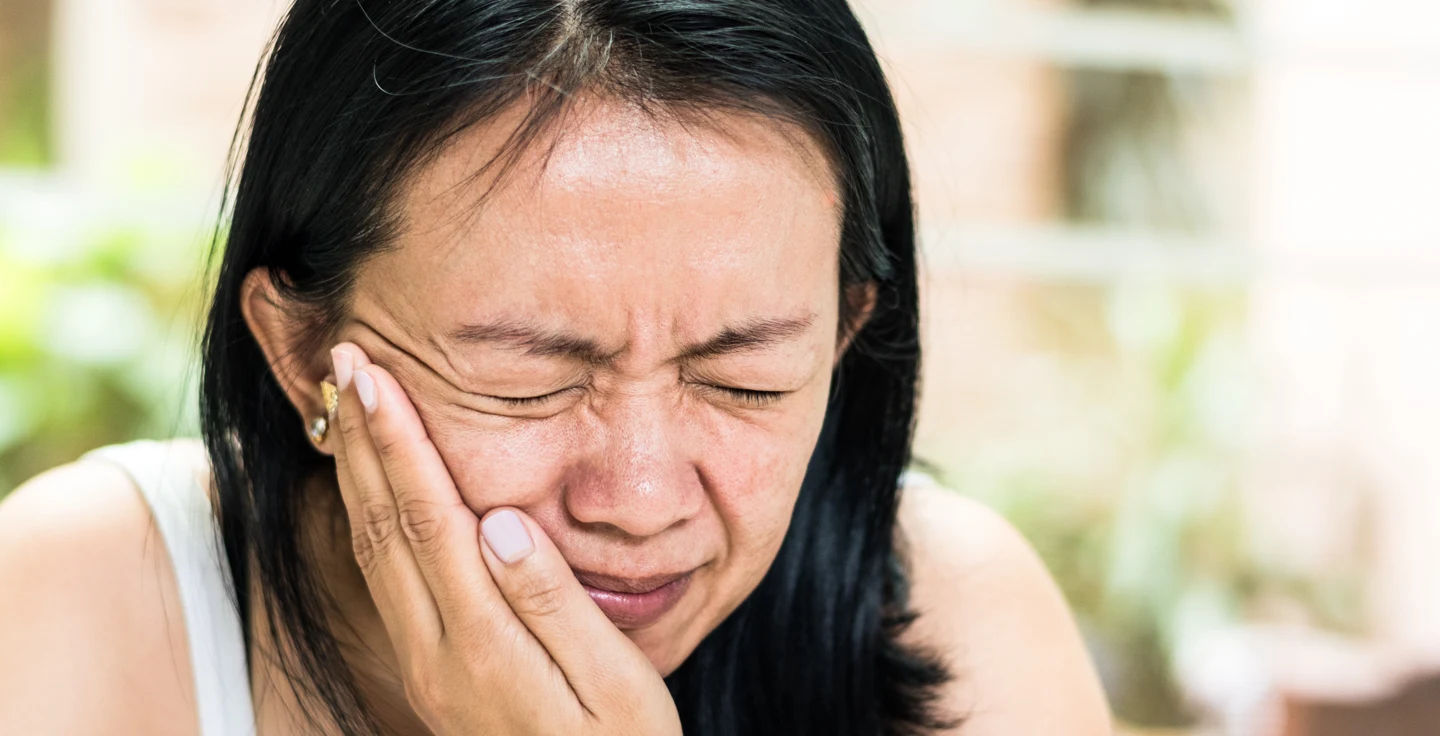Your palate is the roof of your mouth and is made of a hard bone frontal section, and a softer tissue back area. The palate can become inflamed for a variety of reasons, including diseases such as cancer, but also less serious reasons such as mouth ulcers.
Swelling on the roof of your mouth can be painful, appears red, and makes swallowing more difficult than usual. As the condition can be indicative of something serious, it is important to know the causes of swelling on the palate of your mouth and the ways in which you can prevent it.
Keep reading our guide to understand these factors and what treatment you should seek if you are affected by swelling on the roof of the mouth.
Causes of a Swollen Palate
A swollen palate can happen for a variety of reasons, some more serious than others. The most common reasons for the condition include ulcers (sometimes caused by cold sores) and burns or traumas in the mouth. These burns can be caused by something as simple as hot food or drink. Another cause of swollen palate is dehydration, which if left over a long period, can lead to a dry, irritated, and swollen mouth.
Some diseases such as tonsilitis or colds can cause a swollen palate, as well as allergies and intolerances. In less common instances, more severe conditions such as cancer, cardiovascular problems, autoimmune diseases, and neurological conditions can also cause a swollen palate.
Treatment for a Swollen Palate
There are several ways to treat swelling on the palate of the mouth, both at home, and with the help of professionals. Because a swollen palate can be indicative of a more serious condition, it is important to have it looked at by a healthcare professional.
In most cases, your dentist or doctor will simply recommend picking up some mouthwash to soothe the irritation and reduce the swelling. Sometimes, however, it will be necessary to perform a biopsy of the swelling to ensure it is not caused by anything serious. Swelling on the roof of the mouth should always be addressed early on to ensure you do not experience breathing difficulties.
Swollen Palate Home Remedies
If your soft palate is swollen and your doctor has recommended you treat it at home, there are several easy ways in which you can reduce the pain and swelling. These include:
Anti-inflammatory drugs such as ibuprofen reduce pain and swelling.
Maintaining good oral hygiene through regularly brushing your teeth and gums plus using a mouthwash.
Eating a soft diet to reduce the risk of further irritation.
Increasing liquid intake, to reduce dehydration and irritation.
Be sure to check in with a healthcare professional to ensure your chosen method of treatment works and seek medical attention if swelling on the roof of your mouth does not subside after sustained treatment.
Swollen Palate Prevention
There are several ways you can reduce the risk of soft palate swelling, most of which are easy fixes and small adjustments to your lifestyle, these include:
Avoiding smoking and using products containing tobacco or nicotine.
Maintaining good oral hygiene.
Drinking lots of water to reduce your chance of dehydration.
Keeping your neck, and therefore throat, warm.
Avoiding particularly hot, or cold, beverages and food.
Avoid shouting and raising your voice over a sustained period.
Following these steps can greatly reduce the risk of swelling on the palate of the mouth and improve the health of your oral cavity in general. Following these steps is a basis for anyone looking to ensure that their mouth is as healthy as it can be.
FAQs about Swollen Palate
One side of soft palate is swollen, what to do?
See your dentist or a medical professional if you are experiencing swelling on the roof of your mouth. The condition can usually be treated at home but should always be diagnosed by a professional.
Is it bad if the roof of mouth hurts?
If the roof of your mouth is hurting, then it is a good idea to see a dentist or doctor. Soft palate swelling can be a sign of something more serious so it should always be looked at by a healthcare professional.
What foods to eat when the roof of mouth hurts
Adopt a diet of soft foods if you are experiencing soft palate swelling. Try to avoid sharp foods, or especially hot and cold foods and drinks.
